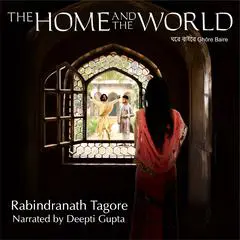 Play Audiobook Sample
Play Audiobook Sample
Nationalism Audiobook
 Play Audiobook Sample
Play Audiobook Sample
Quick Stats About this Audiobook
Total Audiobook Chapters:
Longest Chapter Length:
Shortest Chapter Length:
Average Chapter Length:
Audiobooks by this Author:
Publisher Description
Rabindranath Tagore (1861-1941) was the first Asian to win a Nobel Prize. Nationalism is based on lectures delivered by him during the First World War. While the nations of Europe were doing battle, Tagore urged his audiences in Japan and the United States to eschew political aggressiveness and cultural arrogance. His mission, one might say, was to synthesize East and West, tradition and modernity. The lectures were not always well received at the time, but were chillingly prophetic. As Ramachandra Guha shows in his brilliant and erudite Introduction, it was by reading and speaking to Tagore that those founders of modern India, Gandhi and Nehru, developed a theory of nationalism that was inclusive rather than exclusive. Tagore's Nationalism should be mandatory reading in today's climate of xenophobia, sectarianism, violence and intolerance.
Download and start listening now!
Nationalism Listener Reviews
Be the first to write a review about this audiobook!
About Rabindranath Tagore
Rabindranath Tagore (1861–1941) was a Bengali polymath who reshaped the art of his culture. His novels, stories, songs, dance-dramas, and essays spoke to topics political and personal. His verse, short stories, and novels were acclaimed—or panned—for their lyricism, colloquialism, naturalism, and unnatural contemplation. His compositions were chosen by two nations as national anthems: India’s “Jana Gana Mana” and Bangladesh’s “Amar Shonar Bangla.” Tagore was awarded the Nobel Prize in Literature in 1913 and knighted by the British Crown in 1915, though he later renounced this honor after the 1919 Amritsar massacre.




























